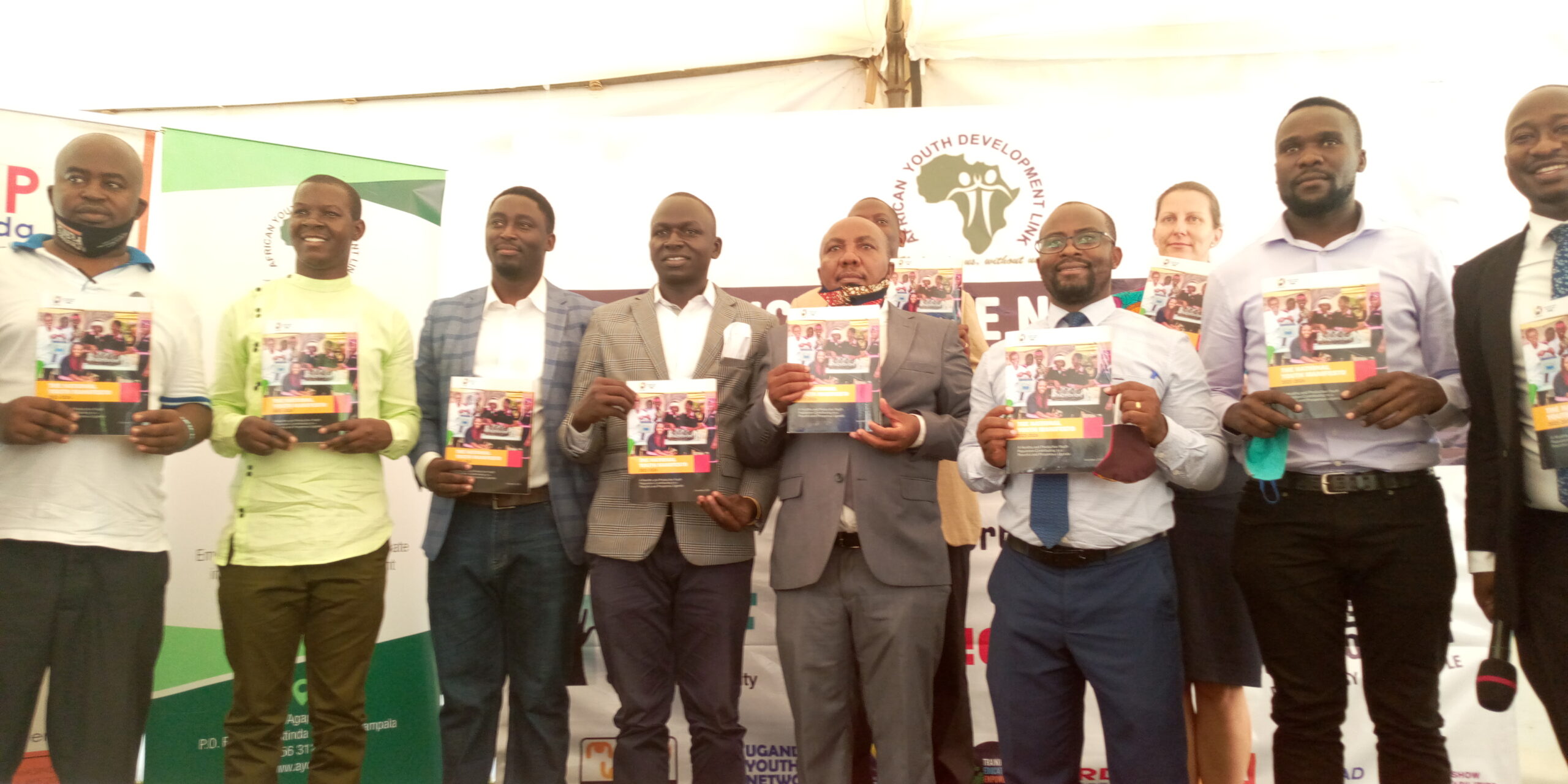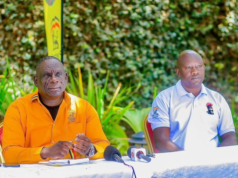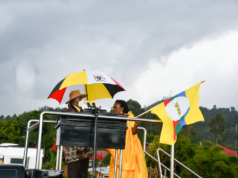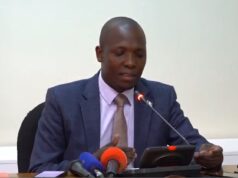Youths have been urged to embrace Agriculture, ICT innovative and creativity as a tool to fight against unemployment in Uganda.
The revelation was made by Fred Ngabirano, the comissioner of Youths and children in the ministry of Gender, Labor and Social Development (MGLSD) while giving his remarks during the launch of the National Youths Manfesto 2021-2026 spearhead Youth Coalition on Electoral Democracy in Uganda (YCED), and other Yiuth-focused civil society organaisations (CSO’s) such as, Action Aid , African youths development Link among others aiming to highlight key policy priorities/demand by youths to government , political parties, and candidates ahead of and beyond of the 2021 general elections.
Ngabirano Says that Agriculture, ICT are the key main sources of income and if they are well managed, it can be a chain of employment opportunity through job creation instead of job seeking.
“Youths should be creative and innovative while puting into practice what they have studied in various institutions of learning hence income and employment generation and desist from being spoon feeding, He said”.
He adds that, currently Uganda’s national unemployment rate is 9.2% whereby unemployment rate within youths aged 18-30 years constitutes 13.4% but all this can be curbed down through ICT, and Agriculture together with innovation and creation, however he appealed to parents to get back to their role of good parenting because this has costed the country alot due to the fact that many chiy grow up when they are desparate.
Globally, the united nations defines a youth as being between the ages of 15 and 24 years old, the African youth charter, which is a regional framework, defines youth as any individual between 15-35 years of age while the Uganda national youth policy stipulates that the youth bracket encompasses all persons aged 15 to 30 years and recognizes that youth are a heterogeneous group. Constitutionally, a youth in Uganda is a person between the ages of 18-30 years.
In 2014, Uganda’s population was estimated at 34.9 million and is currently estimated at 41.6 million people. With a growth rate of 3% per annum coupled with a high fertility rate of 5.4 children per woman, Uganda has the third fastest growing population in the world. About 32.4 million people (78% of the population) is 30 years and below with an estimated 12 million young people (15-30 years).
Uganda’s youth face several social challenges including poverty and poor health. There are high rates of teenage pregnancies because the median age for sexual debut is 16.4 years. 24% of girls (below 20 years of age) in Uganda are mothers or pregnant with their first, sometimes second child. Many factors contribute to high teenage pregnancies, including social pressures, the low status of women, religious pressures, unemployment, and lack of equitable access to family planning methods, including contraceptive information, education, and services for the adolescents.
Obedgiu Samuel, deputy national youth coordinator NUP northern Uganda commended government for a fairly respectable legal, institutional and normative framework for youth inclusion in decision and policy making process. However, youth participation in governance and decision making is affected by limited access to relevant and timely information, limited accountability of leaders to the young people, inadequate capacity and leadership skills for youth leaders, highly commercialised politics including nomination fees for LCV candidates at UGX1m while member of parliament nomination fee was increased from UGX200,000 to 3,000,000 and the presidential nomination fee was increased increased to UGX 20,000,000. Such fees are too high and push out many youth that harbour aspirations.
Nakabira Nashiba, the African youth development link programs officer says the youth manifesto (2021-2026) was developed through a nation-wide consultative process involving youth leaders and youths in their diversities to arrive at the most pressing issues that require urgent attention to strengthen youth development and participation in governance







As a Newbie, I am constantly browsing online for articles that can aid me. Thank you
As a Newbie, I am always searching online for articles that can help me. Thank you
As a Newbie, I am always searching online for articles that can help me. Thank you
Keep working ,splendid job! https://chwilowki-pozyczka.pl – szybka chwilówka